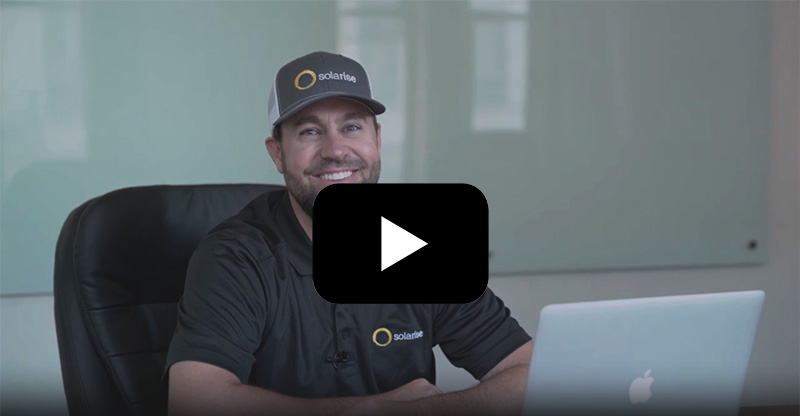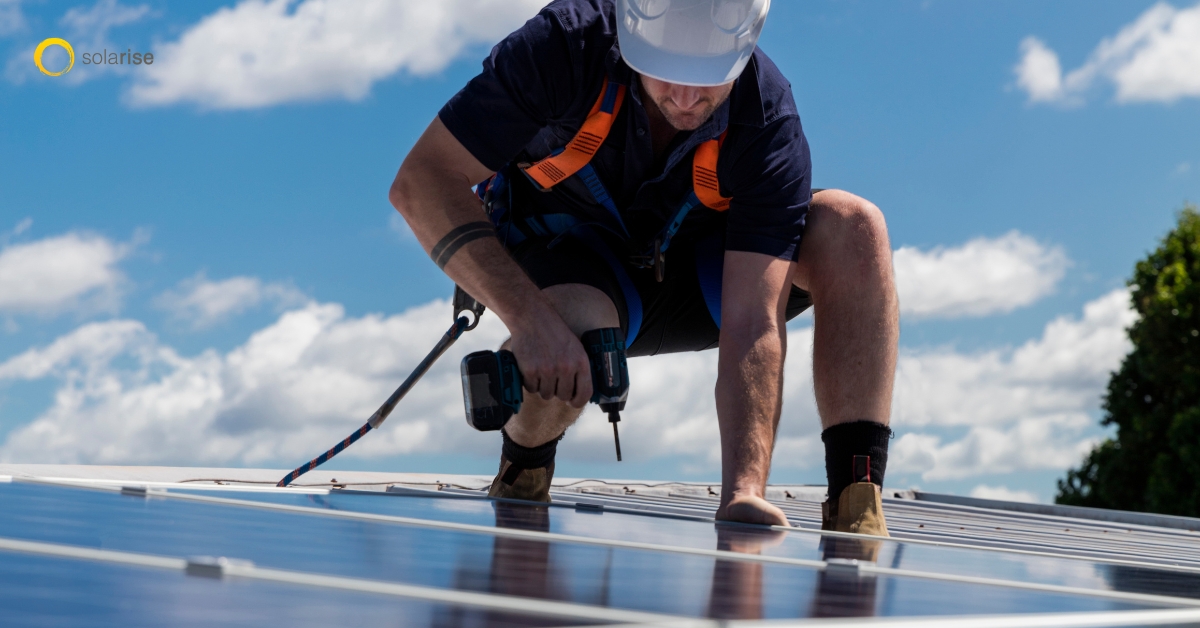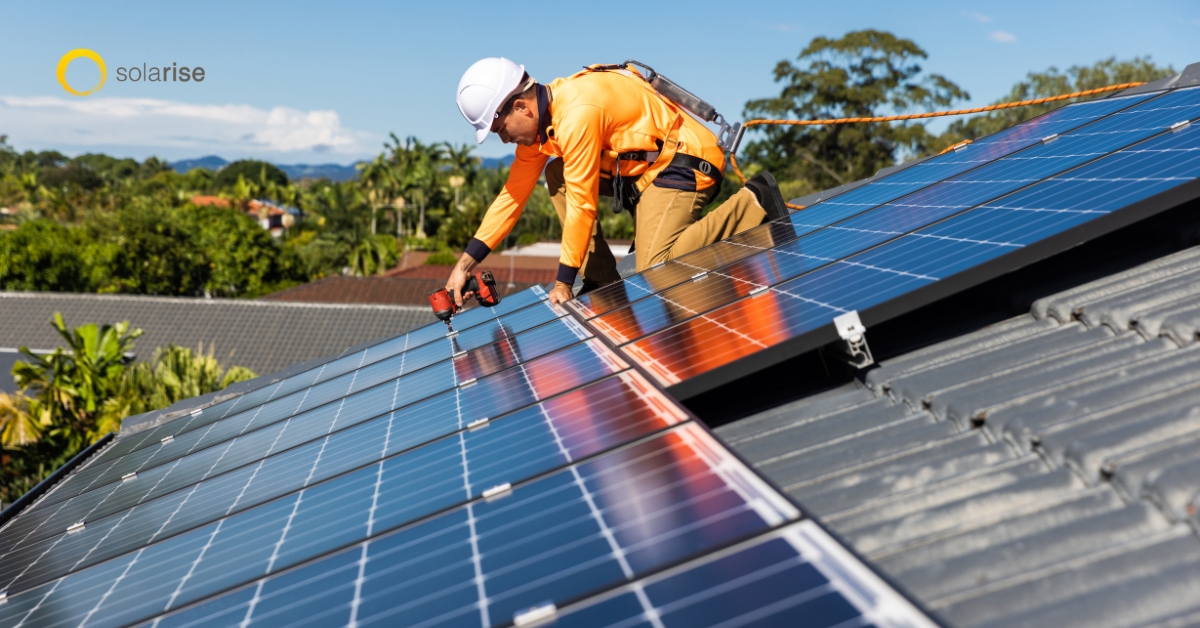Colorado is one of the sunniest states in the US, with an average of 300 days of sunshine each year. That makes it an ideal place for using solar energy. If you've been considering harnessing the power of this Colorado sunshine to help improve your energy independence and lower your utility bills by installing solar panels - there's never been a better time! Thanks to the Inflation Reduction Act of 2022, the federal government has extended and enhanced tax credits for homeowners who invest in solar energy, while state and local governments continue to offer additional incentives.
The solar investment tax credit (ITC) is now set at 30% through 2032, making solar energy more accessible than ever. Homeowners can deduct 30% of the total cost of their solar installation from their federal taxes.
After 2032, the credit will decrease to 26% in 2033 and 22% in 2034. These enhanced incentives, combined with Colorado's abundant sunshine, make solar power an excellent investment for Colorado homeowners.
Table of Contents
- Federal Solar Investment Tax Credit
- Claim the Federal Solar Tax
- Federal Solar Credit Apply
- What Costs Does the Federal Solar Credit Apply?
- Federal Tax Credit for Solar Panel Installation
- Solar Rebates and Incentives in Colorado
- Other Solar Rebates and Colorado Solar Tax Incentives
- Solar Panel Cost Analysis
- Contact Solarise for Your Solar Installation and Startup
Federal Solar Investment Tax Credit (ITC)
The IRS Investment Tax Credit (ITC) for solar investment offers substantial savings when you install a solar energy system at your home. Currently, homeowners can claim a federal tax credit of 30% of their total solar panel system cost through 2032.
Am I Eligible to Claim the Federal Solar Tax Credit?
Not every property or solar panel system qualifies for the credit. To qualify for the solar tax credit, these requirements must be met:
- You must own the solar system (not lease)
- The system must be installed at your primary or secondary residence in the United States
- The solar system must be new or being used for the first time
- You must have sufficient tax liability to claim the credit
How Will the Federal Solar Panel Tax Credit Benefit You?
The federal Investment Tax Credit (ITC) makes converting to solar energy more affordable for homeowners. The IRS’s tax credit applies to solar panels, solar battery storage, and other solar energy equipment and installation. This large federal tax credit adds to the upfront savings of zero down payment and low-cost financing offered by Solarise Solar. As a result, solar panels ROI happens much sooner than it did when the adoption of residential solar panels first began to spread in the United States. Benefits for adding solar panels include:
- 30% tax credit on total system cost for systems installed 2022-2032
- Credit applies to equipment, installation, and related expenses
- No maximum limit on credit amount
- Can be combined with state and local incentives
- Reduces overall cost of going solar
- Faster return on investment
- Reducing or even eliminating the electricity bill
What Costs Does the Federal Solar Credit Apply?
The solar tax credit applies to both the cost of equipment, the cost of installation, and even the sales tax on the project can be included in figuring the rebate. There is no maximum for this credit. (However, if you finance the system, you can't include the cost associated with the loan or the interest.)
How Do I Claim the Federal Tax Credit for Solar Panel Installation?
Claiming the federal solar tax credit is easy and straightforward - simply complete IRS Form 5695 with your tax return.
You will need to upload the following items during the online application process :
- Net Metering Agreement
- Invoice
- Schematic
- Our Solar License Number
Additional Colorado Solar Incentives
Colorado is one of many states in which a variety of incentives are available to make going solar affordable for most homeowners. As part of that effort, Colorado provides a state sales tax exemption (applicable to Sales and Use taxes) for homeowners' purchases of solar panels and other solar energy system equipment. This sizeable upfront tax exemption effectively reduces the solar panel cost. Beyond the federal tax credit, Colorado residents may also qualify for:
- State sales tax exemption on solar equipment
- Property tax exemption for added home value
- Local utility company rebates
- Net metering programs
- Municipal solar incentives
About the Colorado Property Tax Exemption
In addition to the Federal Solar Tax Credit, the State of Colorado offers a Property Tax Exemption for Residential Renewable Energy Equipment. This means that solar energy equipment (such as the PV system) is exempt from property tax. This means that you don't have to pay higher taxes when you improve your home with solar. (This applies only to the solar equipment, not to the associated real estate.) While there is no statewide tax credit for solar energy installations in Colorado, many cities, towns, and municipalities in the state have their own tax credit programs.
Other Solar Rebates and Colorado Solar Tax Incentives
There is not a state-sponsored tax credit for solar panels in Colorado, but there are various rebates and solar incentive programs available. Regional utility companies and local city and county governments offer opportunities that make investing in sustainable energy even more affordable.
Net Metering in Colorado
Your local electric company will track the amount of solar energy your home system produces beyond the amount you use. The utility company will purchase the excess amount from your system for use on the public grid and credit back to you the value of the power it draws from your equipment. Net metering is essential to the success of a state-wide integrated solar utility. Homeowners who produce enough excess energy can actually profit from going solar — getting paid monthly or annually by the electric company.
Colorado Utility Company Rebates
Colorado’s electric companies are required to adhere to the state’s renewable energy guidelines. So, they are motivated to help you obtain solar panels. Of course, the huge solar rebates over the past two decades have mostly expired throughout the United States, including in Colorado. However, the reduced solar purchase prices, remaining federal and state tax incentives, some municipal assistance programs, and utility company incentives have brought the total solar investment cost down to costs that are similar to those when the bigger rebates were in effect.
Xcel Electric Solar Home Performance Incentive
If you are an Xcel Colorado utility company customer, register for the provider’s Solar Rewards program. It pays you for the excess amount of kWh your solar panels generate. You’ll have a contract under which your electric company will pay you a rate of $.07/kWh (an excellent rate) for your solar energy certificates through the first 10 years of a 20-year agreement. That means that for the average 6kW solar energy system, you can earn around $700 per year, which is about $6,500 total for those first 10 years.
Solar Low-Income Grant for Homeowners in Boulder
Some cities have unique cost-effective public solar cooperatives or other appealing initiatives to provide additional incentives for their residents to go solar. For example, the city of Boulder, CO has a program that provides solar grants of up to 50% to homeowners with annual incomes under $82,000 for a family of four. Families can get up to 50% of their total solar equipment purchase and installation cost after other rebates are deducted.
Keep in mind that solar rebates and other incentives offered by utility companies, local governments, solar energy cooperatives, or other sources are subject to change or be discontinued at any time.
Some Colorado energy companies offer additional incentives to homeowners for installing solar panels for home use. Utility customers in Fort Collins, Colorado Springs, and Boulder, among others, can take advantage of such programs. Incentives range from flat-rate cash incentives for a Solar PV installation to per watt incentives for the energy that your new PV system generates.
While installing a solar energy system can be an investment, there are many programs that can offset the cost if you have your system installed by the end of 2021.
Get a Free Solar Panel Cost Analysis from Solarise Today
Solarise Solar, located in Colorado Springs, Colorado can help you get solar panels at the best possible. Colorado homeowners know and trust us to help them design their systems, order the equipment that makes the most sense for their property, and install the system. We are happy to help you make sense of all of the different tax incentive programs and rebates and make sure that you get all of the credits you qualify for.
You pay $0 down payment, so there is no upfront cost to purchase and install solar panels! Solarise low-interest financing keeps the total purchase price of your solar energy system lower.
The Solarise 30-Year Solar Panel Warranty gives you peace of mind throughout the life of your solar energy system equipment.
We take care of all permits, applications, and other paperwork necessary to obtain the required legal approvals, activate your net metering system with the local electric company, etc.
Contact Solarise for Your Solar Installation and Startup
A Solarise solar expert will help you calculate your net cost of converting to solar energy for your home. Your solar installation specialists will set up your solar panels and other equipment in a system configured to meet your needs for your property and for the budget you set.
For information about solar panels, call Solarise Solar at (719) 315-3034, or contact us here on our website to schedule your free home Energy Analysis and estimate.
*The tax credit information contained within this website is provided for informational purposes only and is not intended to substitute for expert advice from a professional tax/financial planner or the IRS.






